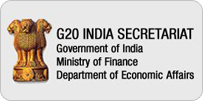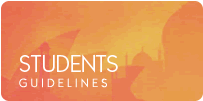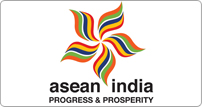Australia has, in recent years, become one of the preferred destinations of Indian students for pursuing higher studies, and even more so for gaining vocational skills.
During the years 2007-2009, the number of Indian students coming to Australia to study grew exponentially. The numbers have come down during 2010 and 2011 as may be seen from the data given below:
AEI student statistics YTD March 2012
Student Enrolment and Commencement Data – YTD March 2012
- As at year-to-date (YTD) March 2012, there were 351,878 enrolments by full-fee paying international students in Australia on a student visa. This represents an 8.5 per cent decline on the same period in 2010.
- India continues to be the second-largest source country for international student enrolments in Australia.
- Total Indian student enrolments as at YTD March 2012 for all sectors was 36,326 compared to 48,464 at the same time in 2011. This represents a decrease of 25.0 per cent.
- VET is the largest sector for Indian students with 26,099 enrolments, followed by Higher Education with 9,603, ELICOS with 454, Other (Non-Award Courses) with 95 and Schools with 75.
- The most popular field of education for Indian students continues to be Management and Commerce across both the VET (16,995) and Higher Education (3,449) sectors.
- Victoria has the most enrolments by Indian nationals as at YTD March 2012, with 16,798 enrolments, followed by New South Wales (7,623), Queensland (6,429), Western Australia (2,499), South Australia (2,477), the ACT (320), the Northern Territory (96) and Tasmania (84).
Indian Student Enrolments and Commencements for YTD March
YTD March Enrolments |
YTD March Commencements |
|||||||||
| Sector | 2008 | 2009 | 2010 | 2011 | 2012 | 2008 | 2009 | 2010 | 2011 | 2012 |
| Higher Ed. | 21,329 | 21,796 | 19,488 | 12,680 | 9,603 | 5,464 | 5,043 | 3,229 | 2,107 | 2,682 |
| VET | 27,585 | 45,958 | 49,658 | 35,234 | 26,099 | 8702 | 12,380 | 8,952 | 8,062 | 6,395 |
| ELICOS | 4,853 | 5,358 | 969 | 359 | 454 | 3353 | 3,007 | 558 | 247 | 276 |
| Schools | 67 | 91 | 122 | 91 | 75 | 18 | 37 | 33 | 25 | 19 |
| Other | 343 | 514 | 249 | 100 | 95 | 170 | 178 | 92 | 32 | 61 |
| All sectors | 54,177 | 73,717 | 70,486 | 48,464 | 36,326 | 17,707 | 20,645 | 12,864 | 10,473 | 9,433 |
| Growth | 36.1% | -4.4% | -31.2% | -25.0% | 16.6% | -37.7% | -18.6% | -9.9% | ||
As Australia is a preferred destination for a large number of Indian students coming to Australia to study, a set of guidelines has been drawn up with the purpose of making Indian students (and their parents and families) aware of what is involved in coming to Australia on a student visa.
Students (and their parents and families) are advised to go carefully through this advisory
FACTORS YOU SHOULD BE AWARE OF :
SAFETY
There have been incidents of robbery and assault on Indian students in Australia, particularly in Melbourne, with the offenders being mainly young people in their teens and early 20s. While Australia is, by and large, free of crime, there are, as everywhere else in the world, certain criminal elements, especially in urban areas.
THE HON’BLE SUPREME COURT’S DIRECTIONS REGARDING ATTACKS ON INDIAN STUDENTS IN AUSTRALIA
[Click here]
A young Indian, aged 21 years old, was fatally stabbed in Melbourne on 2 January 2010, as he was walking to his place of work late at night from a train station through a public park. The offenders have been arrested and sentenced to serve in jail.
MINISTRY OF EXTERNAL AFFAIRS ADVISORY ON STUDENTS STUDYING IN AUSTRALIA : 04 JANUARY 2010
[Click here]
Australia overall is a multicultural society that welcomes people from other cultures, countries and backgrounds. While the majority of Indian students studying in Australia, especially those enrolled in Universities and reputable institutions, have a positive experience of living and studying in Australia, there were about a number of incidents of assault as well as of robbery during 2009 and 2010, which affected not only Indian students but also members of the larger Indian community in Australia. There have been racist elements in some of these incidents.
CLOSURE OF SOME PRIVATE COLLEGES IN AUSTRALIA
There have also been problems encountered in recent years by students studying in privately run colleges, owing to the existence of several sub-standard institutions which do not meet the standards set by the Australian Federal and State governments. These sub-standard institutions exploit international students in a variety of ways. Students who enrol in such sub-standard institutions do not have a happy experience in Australia.
Owing to this problem, several privately run educational colleges were audited by the State Government in Victoria. Further, during 2010 the Federal Government mandated that all education providers and institutions delivering to international students need to re-register by 31 December 2010 so that the Government could ensure that they meet the required safety standards. The Government has also tightened visa regulations, resulting in high number of visa refusals impacting on the enrolments and reducing the intake of international students.
The tightening of student visa regulations, changes in the general skilled migration rules leading to permanent residency, negative impact of string of attacks on Indian students during 2009-10 and the rising cost of Australian Dollar have all resulted in significant decrease in the number of Indian students coming to Australia in 2010. The downward trend has continued in 2011.
The number of students from other countries have also come down.
This has adversely affected the finances of a number of private colleges/institutions, forcing them to declare bankruptcy.
As a result, over 64 colleges and vocational institutions closed down during 2009-2010 affecting over 7000 Indian students, most of them in the States of Victoria and New South Wales. It may therefore be worthwhile to consider studying only at the higher end institutions and the government-run TAFEs which offer vocational and skill-specific training.
The list of the closed vocational institutions also includes some institutions related to aviation training, e.g., Aerospace Aviation School, Sydney Flight Training Centre and Proflite Training Centre (all in New South Wales). Not all of the aviation institutions have modern facilities and good student to aircraft / instructor ratios. Several Indian students who had enrolled in one of these closed aviation institutions took the matter to court but lost on technical grounds. Some of the complaints against these flying institutes included, non adherence to the agreement with regard to adequate flying hours within promised timeline; charging of additional amount over and above the agreed charges; lack of infrastructure including training material; use of vintage aircraft; non helpful attitude of the management. Students are therefore strongly advised to verify the credentials of the institution before joining. The Australian Transport Safety Bureau’s annual review 2009 indicates that there have been 19 fatalities in Australia involving flying training over the period 1999-2008 of which four were in 2008 (including three Indian trainee pilots).
Commonwealth Register of Institutions and Courses for Overseas Students (CRICOS) is the official Australian Government website that lists all Australian education providers offering courses to people studying in Australia on student visas. For an updated list of registered colleges and institutions, please visit CRICOS website : http://cricos.deewr.gov.au/ .
If you are looking at a privately run vocational institution, make sure you check out every aspect of the institution, from its finances to its management, as also what is said about it in forums run by DEEWR, local regulatory authorities and ACPET (Australian Council for Private Education and Training www.acpet.edu.au).
While the Australian government does its best to ensure that students affected by such closures are re-enrolled in suitable alternative courses, there will be a certain amount of dislocation for which you will have to be mentally prepared. You should also be aware of your rights as an international student in Australia as also whom to approach if things go wrong. See “Resources” section.
Many students come to Australia with the aim of obtaining vocational education and also with the primary goal of becoming permanent residents in Australia. Such students are exploited by agents in India who present a false picture of what life is like in Australia and by unscrupulous educational institutions which are working in collaboration with some education & immigration agents.
Because of incorrect information received from agents or other sources, it has been seen that many students come to Australia without the required financial resources or support, in the hope of earning enough through part time work to either pay their fees or send money back home. All students wishing to study in Australia must note that it is NOT possible for a student to earn enough to either pay tuition fees or meet all expenses.
Indian students in Australia who have problems (like issues surrounding fees and refunds, course progress or attendance, the cancellation of enrolments or accommodation or work arranged by providers as also complaint about education agents working for the education providers) with private education and training providers can file their complaints with the Overseas Students Ombudsman (OSO) if they cannot resolve the problems with their educational providers directly. The Ombudsman services are free, independent and impartial. For more details visit: www.oso.gov.au
The Overseas Students Ombudsman has jurisdiction in all states and territories except South Australia where different arrangements apply. The South Australian Training Advocate (http://www.trainingadvocate.sa.gov.au/ ) deals with complaints from overseas students about private education providers.
Complaints relating to public/ government educational providers may be referred to the Ombudsman of the respective state/ territory: http://www.oso.gov.au/related-sites/state-and-territory-ombudsmen.php
Working in Australia while studying
Students are legally permitted to work a maximum of 20 hours a week while the course is in session (excluding any work undertaken as a registered component of your course of study or training). However, there is no guarantee that you will be able to get a suitable job. Further, working more than the prescribed hours may result in your student visa being cancelled.
The adult national minimum wage in Australia, as of July 2011 is A$ 15.51 per hour, this changes annually; unscrupulous employers are known to pay much less, especially to students and sometimes as little as A$ 3.00 to A$ 5.00 an hour. There are also cases where students, especially those enrolled in courses like hospitality or hairdressing, are working without being paid under the pretext of accumulating 'work experience'.
(Ref: http://www.fairwork.gov.au/pay/national-minimum-wage/pages /default.aspx )
In case you have any work related complaint against your employer, please approach Fair Work Ombudsman with relevant details. For more information regarding your work place rights, visit :
http://www.fairwork.gov.au/employment/international-students/Pages/default.aspx
There is also an acute shortage of suitable accommodation as also other shortcomings in the social support network for international students in many of the large cities in Australia and especially in Melbourne. Thus, after arriving here, many students find that they cannot make ends meet and that they have to stay in very low rent areas which often are also high crime areas with very poor facilities. They share their space with others to try and save on rentals; this often leads to over-crowding and often unhygienic and depressing living conditions. These areas are also far away from the institutions where they are enrolled.
In addition, in order to make both ends meet, many students are forced to take low-paying jobs which involve working late night shifts, thus forcing them to travel on the public transport system at odd hours. For example, in Melbourne, it is well known that it is not safe to travel late at night on suburban train lines but a lot of Indian students do exactly that because their jobs involve working late. These students are particularly vulnerable to attacks and robberies because of the circumstances in which they are living.
There is perhaps a general perception by students looking to study abroad that life overseas in developed countries must be better than life in India. However, life overseas has its own problems - loneliness, being cut off from family, friends and your own culture in a strange land with different customs and manners. For instance, an overburdened health and social support system does make a person who goes in to the Emergency area of a public hospital, wait for hours before he/she gets treated and so on, unless there is an immediate life-threatening situation.
All these factors can combine at times to make life difficult for students. There have been several instances of students suffering from depression, as also instances of students taking their own lives.
Owing to all these factors, it is essential that students wishing to come to Australia do as much research as possible to try and ensure a wise choice of institution as also to try and understand as clearly as possible the kind of life that awaits them here, so that they enjoy a positive experience of studying and living in Australia, as indeed most Indian students do.
Students (and their families ) are advised to carefully go through the guidelines given below, which are intended to make them aware of what they need to know before coming to study in Australia.
BEFORE ARRIVING IN AUSTRALIA
- Students wishing to study in Australia are advised to be fully informed of all the actual costs involved in studying in Australia, as also of the relevant rules and regulations governing work, housing and other aspects of living in Australia.
- Before committing yourself to studying in Australia, do your research.
- Find the course which is right for you (see the "Resources" section).
- Make sure that the institution offering the course has a good reputation, especially if it is a privately-run institution. You can do this by:-
- Checking that the institution and the course that you plan to take, is properly registered with the Australian government, which you can do at http://cricos.deewr.gov.au &
http://www.studyinaustralia.gov.au.
- Carefully reading the website of the institution, which should provide all the information you need to make an informed decision, such as a description of the course offered, the environment, the teaching methods, facilities, minimum English language proficiency, etc.
Tips for choosing the right education agent
- Once you have selected the institution of your choice, see if you can enrol with it directly. In case you want to use an agent, please check with the institution for a list of its authorised education agents.
- Check with the Education Officer in the Australian High Commission in New Delhi or the Consulates in Mumbai and Chennai
- Check with friends or others whom you may know who are studying or have studied in Australia.
- Check to see if the agent has completed the Education Agents Training Course: http://www.pieronline.org/qeac/ . Qualified agents will have a good knowledge of the Australian education system, visa requirements and life in Australia.
Agreement with the Education Provider / Agent
- When you have decided your course of study, you must sign a written agreement with the education provider before you pay any course money.
- The written agreement is a very important contract between you and the education provider which sets out the course you will be enrolled in; enrolment conditions; the fees you need to pay, and the refund payable if you don’t complete your course with that provider.
• Read the written agreement carefully before you sign it.
• Make sure that you understand all your rights, including the refund arrangements.
• Do obtain a copy of the written agreement and any other papers you sign.
You will need a copy of the written agreement so that you are aware of your rights. You will also need the written agreement in case you need to make a claim against the provider
Donts
- If you are not happy with any of the terms of the agreement, do not sign the written agreement or pay the agent any money
- Do not sign the agreement just because the agent tells you to sign it.
- Do not use an education agent who asks you to sign the agreement without reading it.
- Do not make any payments to the agent until you have read and signed the written agreement.
- All applications for student visas and permanent residency are assessed by the Australian Government. The agents cannot guarantee that you will obtain a visa or permanent residency. .Do not use agents who guarantee that you will obtain a student visa, or permanent residence
- Getting a job depends on the availability of work and your skills. Do not use agents who guarantee that you will be able to get work in Australia readily with a high salary.
- Do not use education agents for migration advice, unless they are also Registered Migration Agents.
Migration advice
In Australia, migration agents must be registered with the Office of the Migration Agents Registration Authority (MARA). Registered Migration Agents are bound by a Code of Conduct and are required to have an in-depth knowledge of Australian migration law and procedure and meet high professional and ethical standards. For an updated list of agents registered with MARA, visit its website https://www.mara.gov.au/ .
- Do not believe what the migration/education agent tells you, especially with regard to promises that you will be able to earn enough in Australia while still a student to meet all your expenses and also send money back to India - this simply is not true. Students are allowed to work only 20 hours a week, and most jobs that are available for students pay only minimum wages or sometimes even less than the minimum. Getting a job in Australia even after you have completed your studies is not easy. Even getting permanent residency (PR) is becoming increasingly difficult. Please visit : http://www.immi.gov.au/skilled/general-skilled-migration/pdf/
- Make sure you cross-check what an agent tells you with the website of the concerned institution and with the various sources of information listed in the "Resources" section.
- Please also write down all the promises made by the agent and get him to sign the list; this would be required in case of any dispute, and also is a confirmation that the agent is not taking you for a ride but is willing to stand by what he is offering.
- Make sure that you have adequate finances to cover the cost of living as well as your education costs. Australian regulations require one to have a minimum of A$ 18000 per year to cover basic living costs on accommodation, transport and food. Remember that no matter what the agent or anyone else tells you, it is very difficult to earn enough through part-time work to meet all your expenses including tuition fees.
- The minimum wage as of July 2011 is A$ 15.51 per hour; this changes annually; however, unscrupulous employers are known to pay much less, especially to students. We are aware of cases where students work for as little as A$ 3.00 per hour. There are also cases where students, especially those enrolled in courses like hospitality or hairdressing, are working without being paid under the pretext of accumulating 'work experience'.
- You are legally permitted to work a maximum of 20 hours a week while the course is in session (excluding any work undertaken as a registered component of your course of study or training); there is no guarantee that you will be able to get a suitable job. Further, working more than the prescribed hours may result in your visa being cancelled. (For more details on living in Australia, see "Resources" section ).
- Also make sure that you have a written agreement from the college/ institution before paying any fees; this will be essential if there is any dispute.
- The Education Services for Overseas Students (ESOS) Act 2000 alongwith its associated legislative instruments, available at the following link, http://aei.gov.au/AEI/ESOS/Default.htm, provides the Australian regulatory framework that governs the delivery of education and training services to foreign students in Australia.
- Learn about your legal rights under the Education Services for Overseas Students (ESOS) framework, which is supervised by the Dept. of Education, Employment and Workplace Relations (DEEWR) www.aei.gov.au
- A quick overview of ESOS is available at the following link: http://www.aei.gov.au/AEI/ESOS/EasyGuide_ESOS.htm
- The National Code of Practice for Registration Authorities and Providers of Education and Training to Overseas Students 2007 (The National Code) http://aei.gov.au/AEI/ESOS/NationalCodeOfPractice2007/National_Code_2007_pdf.pdf provides standards for education providers as well as state and territory regulatory authorities in Australia.
- During 2010, DIAC has announced major changes in rules relating to General Skilled Migration leading to Permanent Residency in Australia. The details are available at http://www.immi.gov.au/skilled/general-skilled-migration/whats-new.htm
- Changes in Student Visa Regulations: The website of the Department of Immigration and Citizenship (DIAC) at http://www.immi.gov.au has comprehensive information on the rules and regulations relating to visas, including student visas. For the latest changes announced by Australian government regarding student visa visit: http://www.immi.gov.au/students/whats_new.htm
- The tough immigration measures, increased competition from other countries and rising cost of Australian Dollar have resulted in falling numbers of applications in the international education sector, adversely affecting the industry. To address these concerns the Australian Government announced, on 16 December, 2010 changes to allow lower entry requirements for overseas students and a strategic review of student visa programme headed by former NSW Minister for Sydney Olympics, Mr. Michael Knight to look into the framework underpinning the student visa programme; risks and recommend ways to improve partnerships between education providers and visa processing arrangements.
- On 22 September 2011, the federal Government released the report submitted by Mr. Michel Knight on ‘Strategic Review of the Student Visa Program 2011’. It accepted all 41 recommendations made by Knight Review with the majority proposed to be implemented through 2012-13. Major recommendations include streamlined visa processing for students applying to study at universities at bachelor level or higher; reduced financial requirements when applying for student visa; all graduates from Australian bachelor degree to have access to 2 years post-study work visa; no minimum English level for visa applicants who want to study English courses; legislative changes be made to require the name of any agent involved to be entered into the student’s data; repeal automatic cancellation and mandatory cancellation provisions for student visas; the Government to support high quality Australian vocational education providers in expanding their offshore training services etc.
- The Australian Government plans to implement the package in two major stages. Under Stage 1 of the implementation process, from 5 Nov., 2011 the Australian Government has reduced the financial requirements for higher risk Assessment Level 3 and Assessment Level 4 student visa applicants (applicable respectively for University level and VET sector in case of Indian students). This reduces the financial requirements by up to approximately A$36 000 for an Assessment Level 4 applicant and up to approximately A$ 18 000 for an Assessment Level 3 applicant. Applicants for the non-university sector in particular will benefit from this change. Also, the government has introduced a new genuine temporary entrant requirement for all student visa applicants with a view to reduce migration risk.
- In December 2011, the Government announced plans to extend eligibility of the post-study work visa. In addition to university graduates, the new post-study work arrangements are to be extended to Bachelor, Masters by coursework, Masters by research and PhD degree graduates from other education providers accredited to offer degree level programs in Australia.
- For more details on the Knight Review visit http://www.immi.gov.au/students/knight/
Students are advised to visit the above websites to familiarise themselves with:-
- your legal rights as a student and all the relevant rules and regulations that apply to you;
- the standards prescribed for registered providers (university/college etc.) and education agents, so that you can check with the university/college as well as the education agents about the compliance of these standards and requirements, including student support services, including critical incident policy and complaints and appeals processes; and
- the relevant immigration rules and regulations that will govern your life as a student in Australia, including work rights and those rules that will apply to you if you choose to stay on in this country after finishing your studies to seek permanent residency.
Health Insurance: As an international student, it is a condition of your student visa that you have Overseas Student Health Cover (OSHC) for entire duration of your study in Australia. For details visit www.oshcworldcare.com.au (see "Resources" section for more information on OSHC - Overseas Student Health Cover). You should ensure that your health insurance covers the entire period of your
stay in Australia.
- You may also consider insuring any valuables or expensive electronic items that you may possess.
Import of goods in baggage: Please remember that all luggage is x-rayed or screened on arrival. You must declare all food, plant material and animal products for quarantine inspection. If you fail to declare or dispose of any quarantine items or make false declarations you will be caught. You could be fined A$ 220 on-the-spot; or you could be prosecuted and fined more than A$ 60,000 and risk 10 years in jail. You will not be penalised if goods are declared. For more details about the list of goods that need to be declared and which ones are prohibited from entry into Australia, visit www.aqis.gov.au .
AFTER YOU ARRIVE IN AUSTRALIA - SETTLING DOWN
- On arrival, you should convey by means of an e-mail or a letter, to the High Commission/Consulate, your contact details, including name and address, the name of the university/ educational institution you are studying in, details of the course you are joining, and the duration of your intended stay in Australia.
CONTACT DETAILS
- If you are resident in New South Wales or South Australia, go to
www.indianconsulatesydney.org
- If you are resident in Victoria or Tasmania, go to www.cgimelb.org
- For the rest of Australia, go to www.hcindia-au.org
- After completing enrolment formalities, familiarise yourself with the student services offered by the institution that you have joined, such as counselling services, help in finding suitable accommodation and jobs, assistance in improving your English etc.
- Check out the various banks on campus and see what they offer before opening an account. Please do not keep large amounts of cash at home or on your person.
- Check out different plans before buying a mobile phone. Remember to use phone cards for international calls.
- Whatever accommodation you choose, remember it is your responsibility to maintain it and keep it clean. If you are sharing accommodation, discuss how domestic chores would be shared before committing yourself.
- Also familiarise yourself with the educational aids available to you, especially the library and online resources, keeping in mind your course structure and the evaluation methods that apply to you.
- You have many rights as a student in Australia. Learn about your rights as a student and the procedures that you should follow to exercise these rights. See "Resources" section.
- For more information on accommodation, transport and the various government services that students can avail of, see "Resources" section.
- You should obtain, from the university authorities, details about the security situation in and around your university and place of stay. You should also get to know the local policing arrangements through the concerned authorities in the university.
- In your University/place of study, it would be useful for you to keep in touch not only with other Indian students but also with Australian and other international students.
- Any and all complaints should be brought to the attention of appropriate authorities; at no stage, should you take or attempt to take the law into your own hands; breaking the law will invite strict legal and police action, which could include deportation. See “Resources” section.
- Remember that you are representing India in Australia. Behave appropriately at all times.
- There are a large number of Indian Associations in Australia. After coming to Australia, you may feel lonely and alienated. Please keep in touch with the High Commission/Consulates which can put you in contact with the local Indian Associations and the Indian community so that you feel at home. You should also get to know the local Indian Associations and keep in touch with them. See "Resources" section. The Indian Associations are there to help the Indian community in Australia, including students. They organise many cultural functions where you could participate and get to know other members of the community, including senior Indians who are willing and ready to mentor you and offer useful tips and advice.
Living safely in Australia
- Keep important documents and money in a safe place.
- Make sure you keep photocopies of relevant pages in your passport and other important documents in a separate place.
- Also keep a scanned copy of important documents in your personal email.
- Try not to travel alone late at night. If you are travelling alone, make sure that you have checked out your route carefully and try and keep to well-lit, populated areas as far as possible.
- Make sure that someone knows where you are going and at what time you are expected to return.
- Don't carry more cash with you than what is required.
- When you are travelling alone or late at night, it is advised do not make it obvious that you are in possession of expensive items, such as mobile phones, iPods or laptops.
- Always carry with you some identification as well as details of who should be contacted in an emergency.
- If in danger, dial 000 to get police help. Check out the other hotline numbers in the "Resources" below.
- In case you have a complaint, get in touch with the officer responsible for students welfare in the High Commission or the Consulate nearest to you, at the contact details given in "Resources" section.
- If you have a genuine problem, do not hesitate to approach the police or other authorities; making a complaint will not affect your visa status.
DO YOU HAVE A COMPLAINT TO MAKE BUT ARE NOT SURE WHAT TO DO
[Click here to e-mail your complaint]
UNIVERSAL RULES OF BEHAVIOUR WHICH ARE IMPORTANT TO REMEMBER
Always remember that you are an Indian and that your behaviour will determine the image of India and Indians registered by those people who interact with you. Obviously, none of you would wish to project a negative image of India and Indians. Therefore, it is important to always remember and abide by the following basic rules of behaviour which all of you already know but which are worth emphasizing:-
- An aspect of your behaviour to which you should pay special attention is not invading another person's privacy or personal space. Maintain some distance from the person you are talking to (at least an arm’s length).
- Do not push or shove in crowds.
- Don't ever break a queue - this is very important!
- Do not stare openly at passers-by.
- Don't talk so loudly that other people are disturbed.
- Don't ask personal questions of strangers.
- Please show respect for all, irrespective of age, gender, dress or appearance.
- Be polite. Greet people with a smile and a hello or good-day or how are you; respond when other greet you the same way.
- Please always use 'Please' and 'Thank you' - these words will serve you well.
- Please respect other's time and be punctual; if you are running late or cannot make an appointment, please ensure that you inform the person you are going to meet, well in time.
- Remember that certain aspects of Australian culture are different from your own. Do not make any judgements about people based on the fact that they speak, dress or behave differently from you.
MAKING THE MOST OF YOUR AUSTRALIAN EXPERIENCE
- For many of you, this may perhaps be the first time that you are away from home and in a foreign country, enjoying your first taste of independence. Please do remember, however, that in Australia, if you are over 18 years of age, you will be treated as an adult and held responsible for your actions and consequences.
- Remember that as a student studying in Australia, you have an opportunity to learn about Australia and other cultures. Spend time with other students from other countries and with Australian students. This is the best way of not feeling isolated and will considerably enrich your experience of studying in a foreign country.

















